The Edtech Insiders' Rundown of ASU GSV 2023
7,000+ attendees, 300+ Sessions, and 4 Edtech Insiders' Takeaways
Takeaways from ASU+GSV
The ASU+GSV conference is now behind us, and what an experience it was!
With almost 7,500 attendees (by far and away the largest attendance ever), every session was jam-packed, and walking the conference hallways felt a bit like navigating Grand Central Station at rush hour.
The line to see Bill Gates speak was friggin’ ridiculous, but even standard sessions were standing room only- luckily, a playlist of top Speaker sessions is available here.
Keeping our eyes out for all of you Edtech thought leaders, CEOs, investors, educators and operators we know- many of which we’ve only met through Zoom or Linkedin- took some serious cognitive load, but it was worth it!
It was such a blast to see so many Insiders, and everyone who came up to say they listen to the podcast really made our day!
Our Edtech Insiders “/Imagine AI” Event was no exception to the hubbub, with a full house including tons of AI experts and a waitlist of over 200(!); special thanks to co-sponsors Magic Edtech, Good Harbor Partners, Edtech MBA Community (and especially the amazing Hailey Carter), and Edtech accelerator Started.
BTW, our next Happy Hour event is in Redwood City, CA on Thursday, May 18th : RSVP Here!
OK- now that a few days have passed, we are finally ready to download four of the major takeaways from this mega-conference.
Takeaway 1.:AI = Everywhere
There wasn’t an hour that went by at the conference at which we didn’t hear about or discuss AI and its implications for Edtech, which are virtually endless.
To this end, we’ve put together a working list of over 100 Edtech AI tools made specifically for education and tagged by feature, building on top of a variety of other such compilations.
A few current categories of AI in Edtech particularly jump out:
Teacher Productivity and Joy: Tools to make educators’ lives easier (and more fun?) by removing some of the more rote tasks of teaching, like lesson planning (we counted at least 8 different tools for lesson planning), resource curation and data collection.
One tool we particularly appreciated- playlab.ai - empowers teachers to easily make their own AI tools that can perform repeated tasks needed throughout the year; for example, looking at aspects of an IEP or a curricular standard and recommending educational activities and lessons.
This category also includes all variety of ‘teaching assistant’. Oko labs is working on an AI teaching assistant that creates and runs differentiated group activities in math classrooms.
Personalization and Learning Delivery: Tools to tailor instruction to the particular interests, learning preferences and preferred media consumption of students. This includes tools that convert text to video, video to text, text to comic books, Youtube to notes, and many more.
Study and Course Creation Tools: Tools for learners to automatically make quizzes, flashcards, notes or summaries of material, or even to automatically create full courses from a search term.
AI Tutors, Chatbots and Teachers: There will be no shortage of conversational AI “copilots” (which may take many guises) to support students in almost any learning context. Many Edtech companies launched their own during the conference. Possible differentiators here could be personality, safety, privacy, access to a proprietary or specific data set, or bots built on proprietary LLMs.
Simplifying Complex Processes: One of the most inspiring conversations of the conference for me was with Tiffany Green, founder of Uprooted Academy, about how AI can and should be used to remove bureaucratic barriers to college for underrepresented students (for example, used to autofill FAFSA forms, College Applications, to search for schools and access materials, etc). This is not the only complex bureaucratic process in education.
Educational LLMs: The race is on to create usable large language models for education that are safe, private, appropriate and classroom-ready. Merlyn Mind is working on this, and companies that make LLMs are sprouting up in other sectors…
Most of these use cases are already here- and I’ve left plagiarism detection off the list, as this category may change dramatically this year. As for future use cases, the sky’s the limit! We’ll be reporting on this all year.
Takeaway 2: “Skills” are finally coming to connect education and career mobility
My second most-heard term at the conference was “skills” (and closely followed, “skills taxonomy”); there seemed to be a growing consensus that in a fast-changing economy, hiring managers are actually starting to evaluate and hire for specific skills- be they ‘durable’ (AKA soft, power) or ‘hard’ (AKA technical) skills. Perhaps the age of ‘culture fit’ and ‘self-starter required’ are finally coming to a close.
What feels new this year is the rise of skills-based hiring tools
Pluralsight, Coursera, Workera, Linkedin Learning and HackerRank (among others) have been working to assess tech skills accurately for a while now, and are getting better and better. A slate of soft skills assessment tools are out as well, many of which are leveraging AI to evaluate video, audio or face recognition.
That means the race to teach these skills is on… and that the ‘black box’ of traditional degrees and certificates must finally be unpacked into their composite skills. Universities, tech companies, bootcamps, alternative credential providers, and, of course, AI study tools are all going to compete to be the most effective upskiller.
It didn’t go unnoticed that Guild just expanded its goal of “career mobility” to provide micro-learning for specific skills (… and that those skills are primarily taught by the employers themselves). I read this as a tacit acknowledgement that “Education-as-a-Benefit” shouldn’t be constrained to formal learning and degrees.
Takeaway 3. Latin America Represents
There were a significant number of Latin American Edtech companies represented at the conference, including a large proportion of the ASU GSV Pitch competition finalists (as well as two of the three finalists, Vinco and Luca, both out of Mexico).
Adrián Ridner, CEO of Study.com and one of the few Latin American leaders of an American Edtech company (he’s originally from Argentina), noted the visible increase in immigrant entrepreneurs as well as a stronger representation from Latin America.
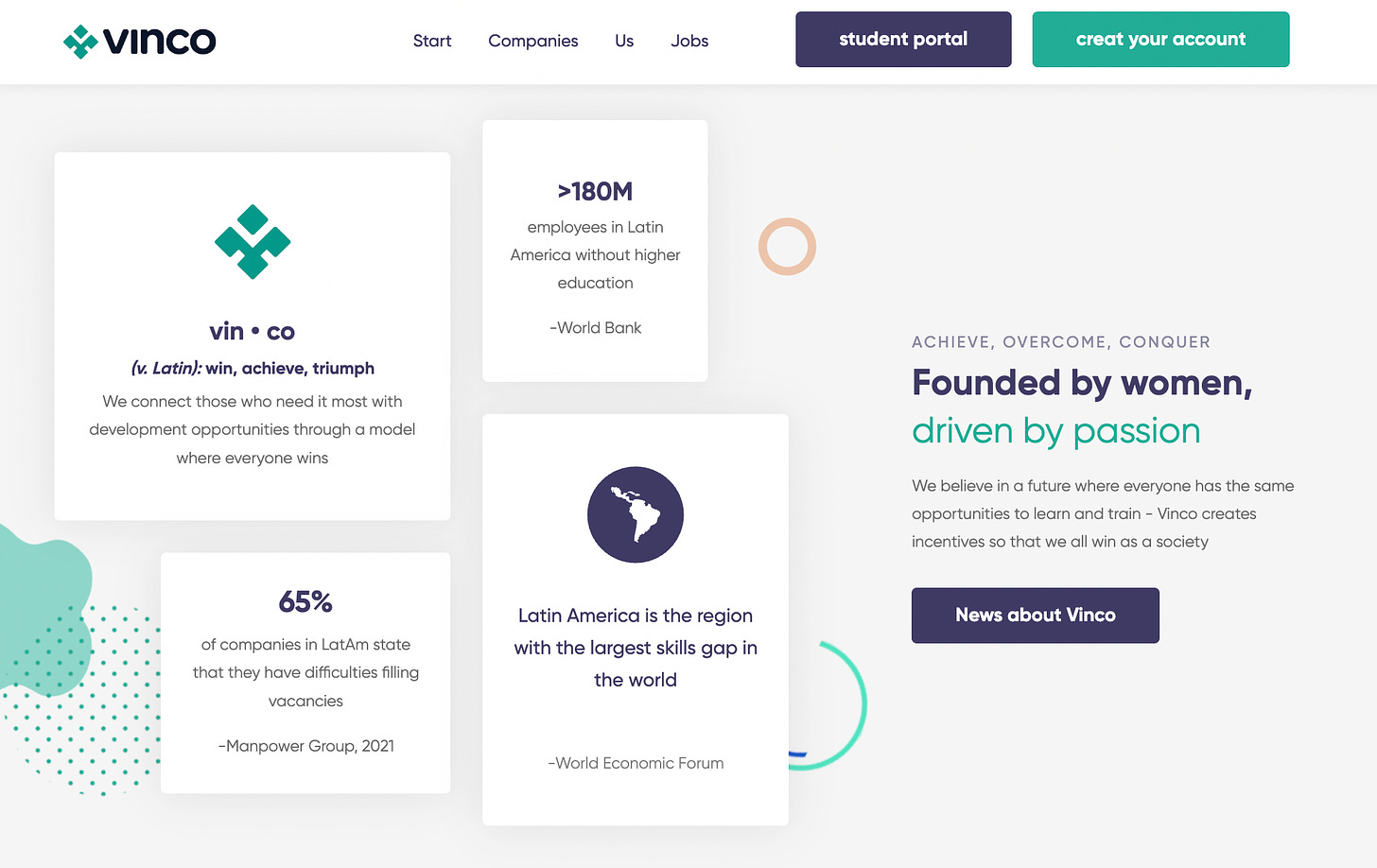
Many of these companies already have serious traction and large user bases, and Edtech investors like Reach Capital (as well as GSV and others) are starting to look seriously at the region. There are over 1,500 Edtechs in LatAm, and countries outside of Brazil are starting to spawn fascinating businesses.
Takeaway 4. No Clear Answers for K12 Crises
While there were dozens of sessions about the future of PK-12, and plenty of ideas about how to incorporate Edtech to improve staffing and teacher retention, provide more tutoring, offer hybrid options, continue to scale alternative schooling, and reach neurodiverse students and students of color…
…I didn’t get a sense that there was anything near a consensus about how Edtech is pulling together to address one of the largest educational cataclysms in American history, which combines an unprecedented mental health crisis…
“In a survey of almost 200 superintendents in 37 states, a large majority of superintendents (81%) agree student behavioral concerns have deepened since the pandemic and an even greater portion (92%) indicate the student mental health crisis is worse than in 2019. most (79%) also say they don’t have the staff to focus on the problem.” - K12 Dive, Feb 2023
… with the effects of the COVID-19 pandemic, which are estimated to have erased more than 20 years of progress. Even after ESSER, the US government is throwing money at it, but it feels like the Edtech community has a ways to go to really address the scope and scale of these issues. Are we missing something here?

This Edtech Insiders is sponsored by Magic Edtech:
Magic EdTech has helped the world’s top educational publishers and Edtech companies build learning products and platforms that millions of learners and teachers use every day. Chances are that you're probably using a learning product that they’ve helped design or build!
Companies like Pearson, McGraw Hill, Imagine Learning, American Museum of Natural History have used their help to design or build some of their learning products. Now, Magic wants to bring its pedagogical and engineering expertise to make your key learning products accessible, sticky, and well-adopted.
LISTEN
We recorded many podcast interviews at and about the ASU GSV conference to help make sense of this moment in Edtech.
Head over to the Edtech Insiders podcast to check them out. Some are published now, others will be published over the next week!
Listed in Alphabetical Order:
Adrián Ridner, CEO of Study.com
Amy Bevilacqua, Managing Director of Green Street Impact Partners
Ashley Chiampo, CLO of Emeritus
Chuck Cohn and Anthony Salcito, CEO and CIO of Nerdy
Fadl, CEO of Nexford University
Jason Palmer, Managing Director of New Markets Venture Partners
Ope Bukola of Kibo School and Ahva Sadeghi of Symba.io, the 2021 and 2022 ASU GSV Cup Winners
Nancy Soni, Pathmatch Founder and ASU GSV Cup Pitch Competitor
Upcoming: Kenzie Butera of Maro, winner of this year’s ASU GSV Cup
TOP EDTECH HEADLINES FROM THE CONFERENCE
Lots of news dropped during the ASU GSV Conference – here are some of the headlines that stood out to us:
1. Edtech Companies Launching New AI Tools
With the fast moving pace of AI across the board and in the Edtech industry, ASU GSV was the place to launch new AI edtech tools this year.
Explore some of the newly announced tools below:
2. Reach Capital’s Big Round and AI Catalyst
Reach Capital, one of the largest Edtech-specific venture firms, announced a variety of new funding options this week, including:
a $215m Core fund, some of which will go to an Opportunity fund for existing investments
an AI + Learning Catalyst program for early stage Edtech AI startups (of which there are many already and many more to come)
a $4M sidecar Founders Fund consisting of forty-eight current or former founders from the Reach portfolio.
3. Guild Rebrands to Upskilling
Guild Education announced a rebrand to simply “Guild”, pivoting from a pure education focus to a career mobility focus. We’re watching curiously to see what this means for the “education as a benefit” Edtech niche, and for what grain size of education turns out to be most beneficial for working learners.
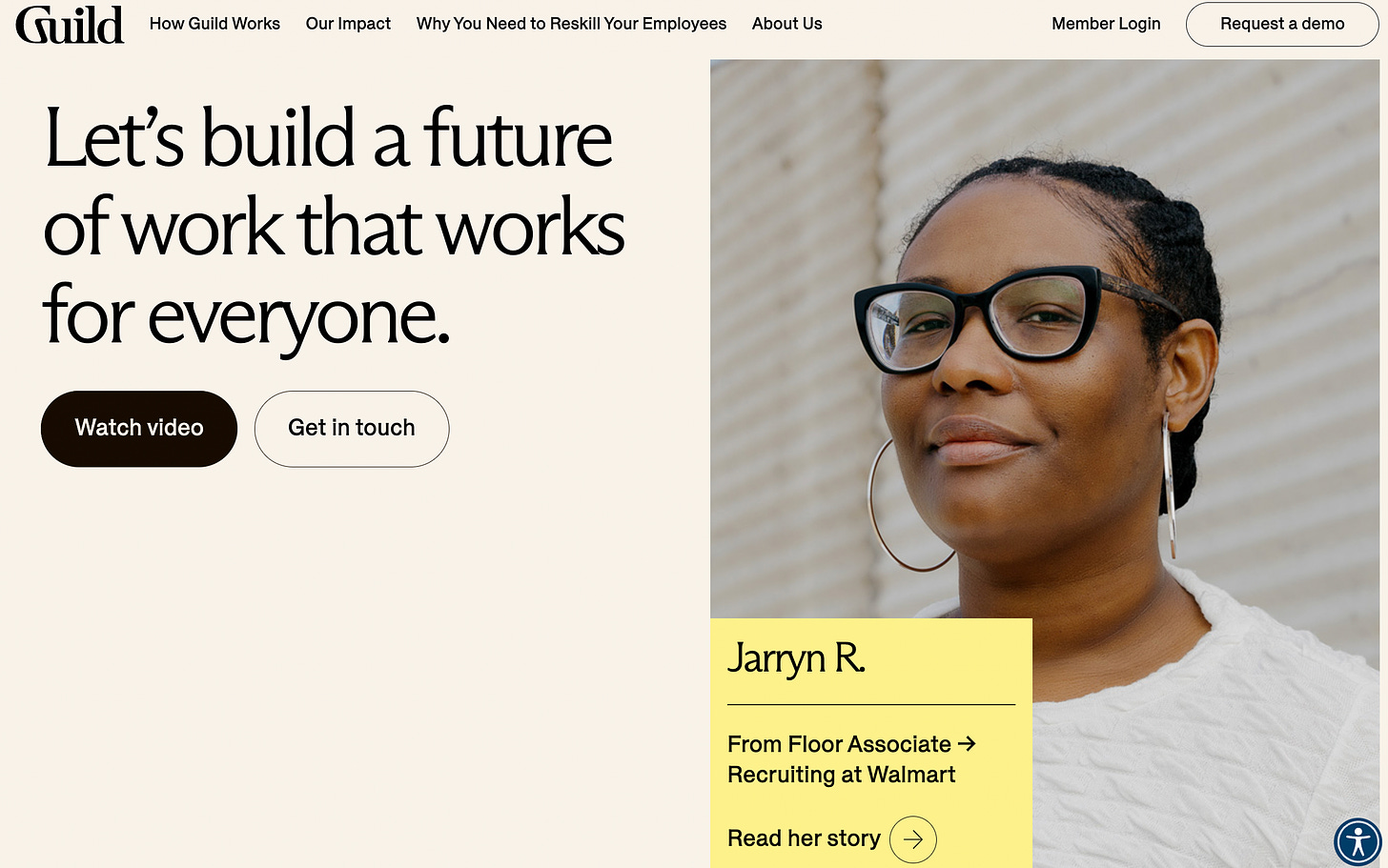
4. Edtech Evidence Toolkit
The US Department of Education released the EdTech Evidence Toolkit, which offers educational leaders evidence to inform Edtech adoption decisions in schools by providing:
Introductory evidence-building activities for four tiers of evidence, as outlined in ESEA
Example case studies for using evidence-building activities to inform edtech adoption
Suggestions for collaborative activities to encourage use of evidence in schools
We’re curious to observe what this means for future opportunities to develop Edtech solutions in schools at all grade levels, and also what additional regulations may come with a major shift in technology normalization like this.
Thanks for reading Edtech Insiders! Subscribe for free to receive weekly updates and support the podcast.







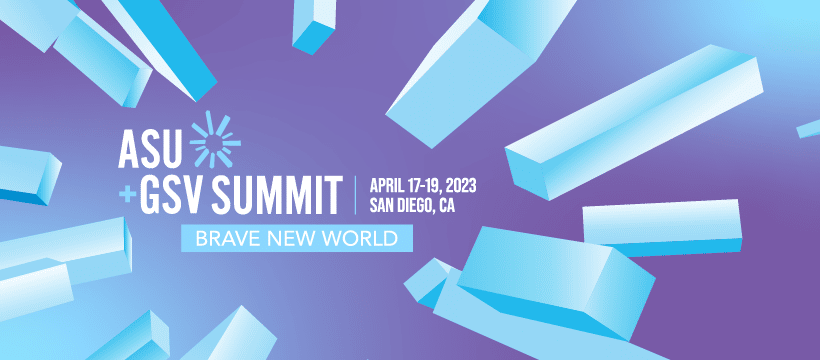


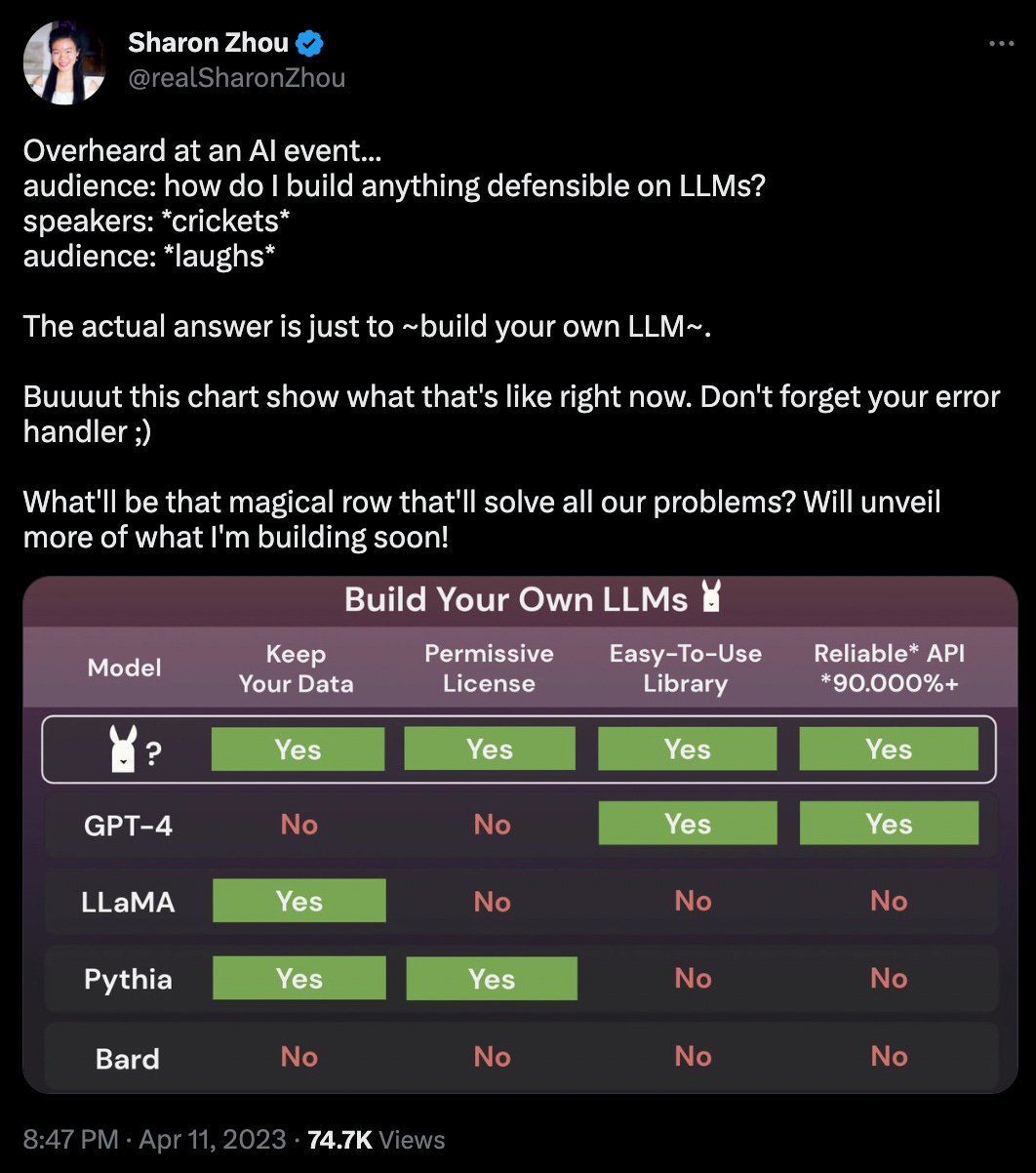
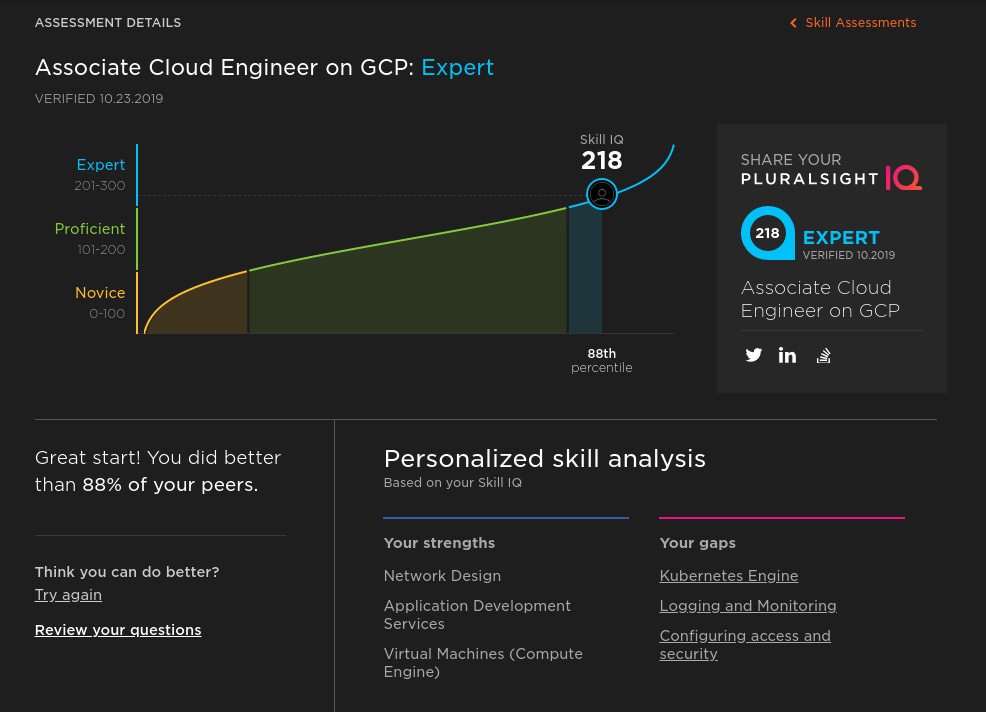
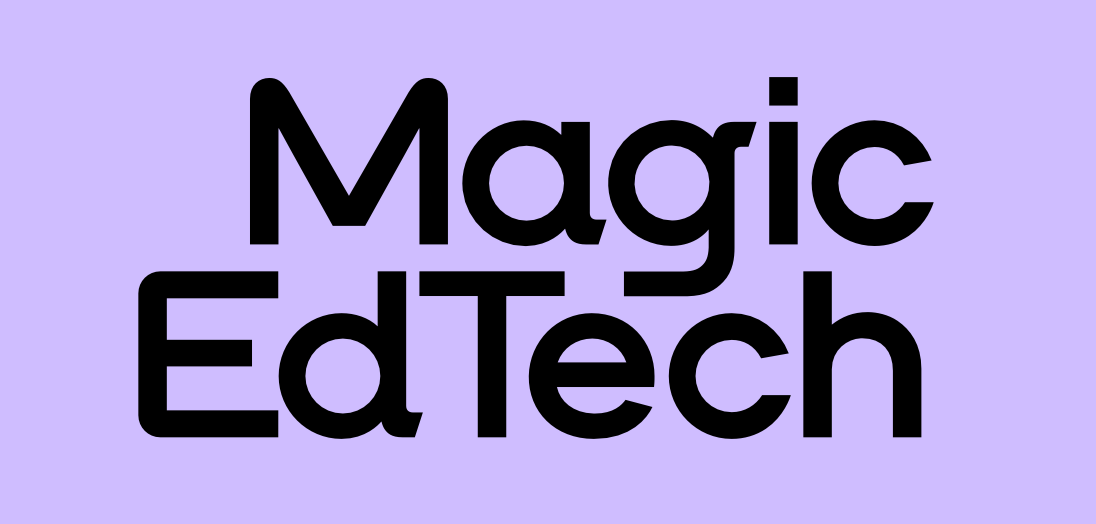


Thanks for sharing
Playlab looks really promising!